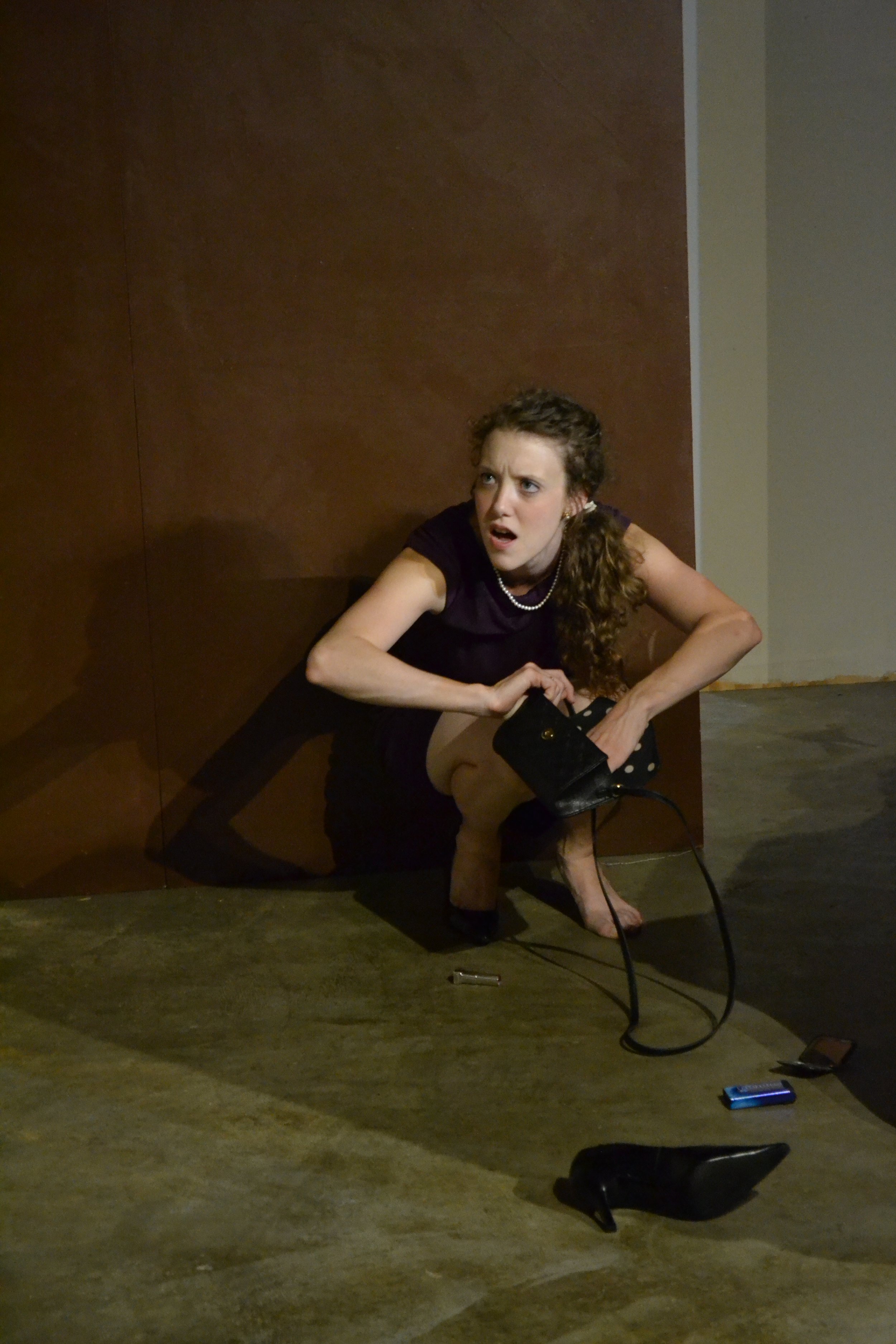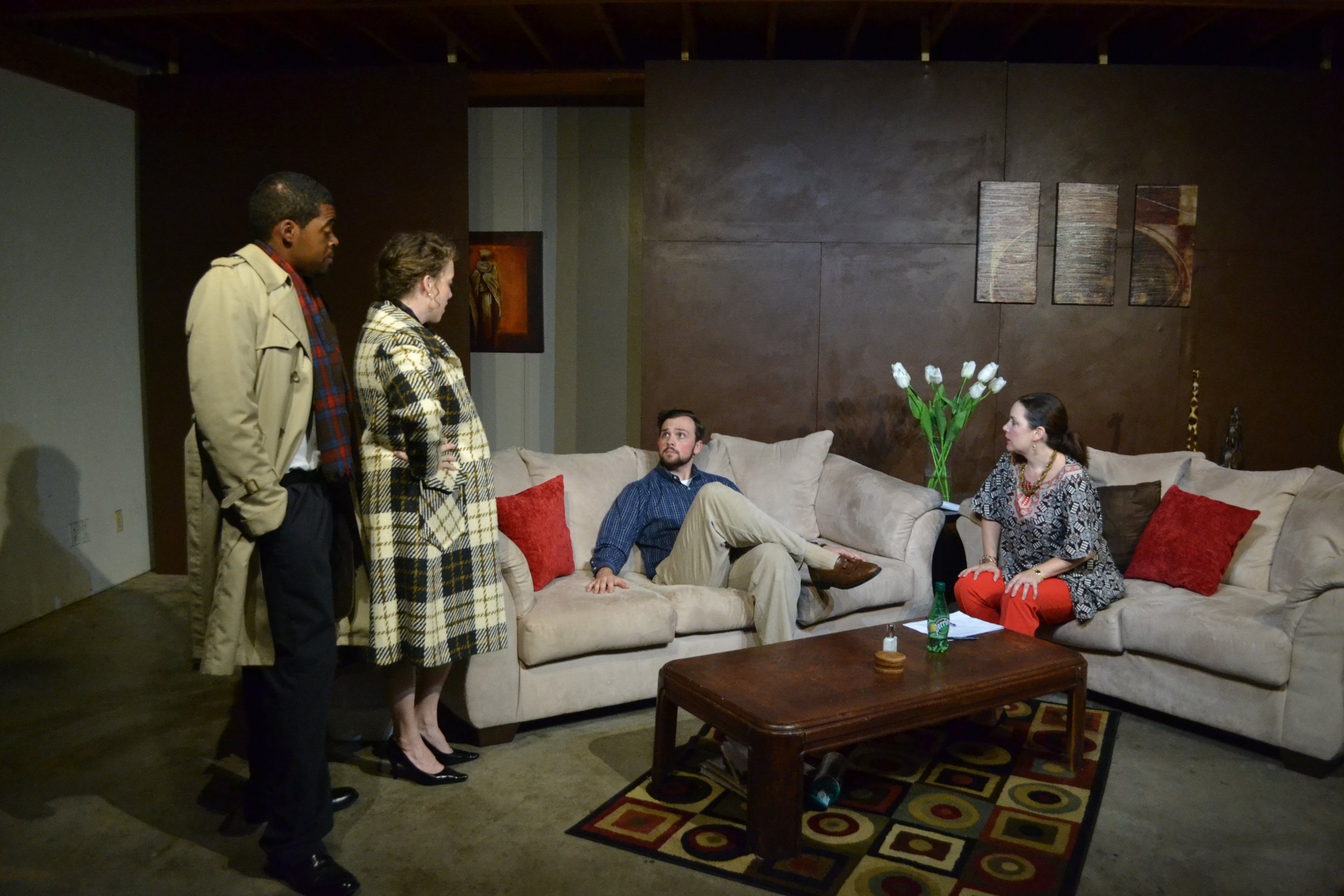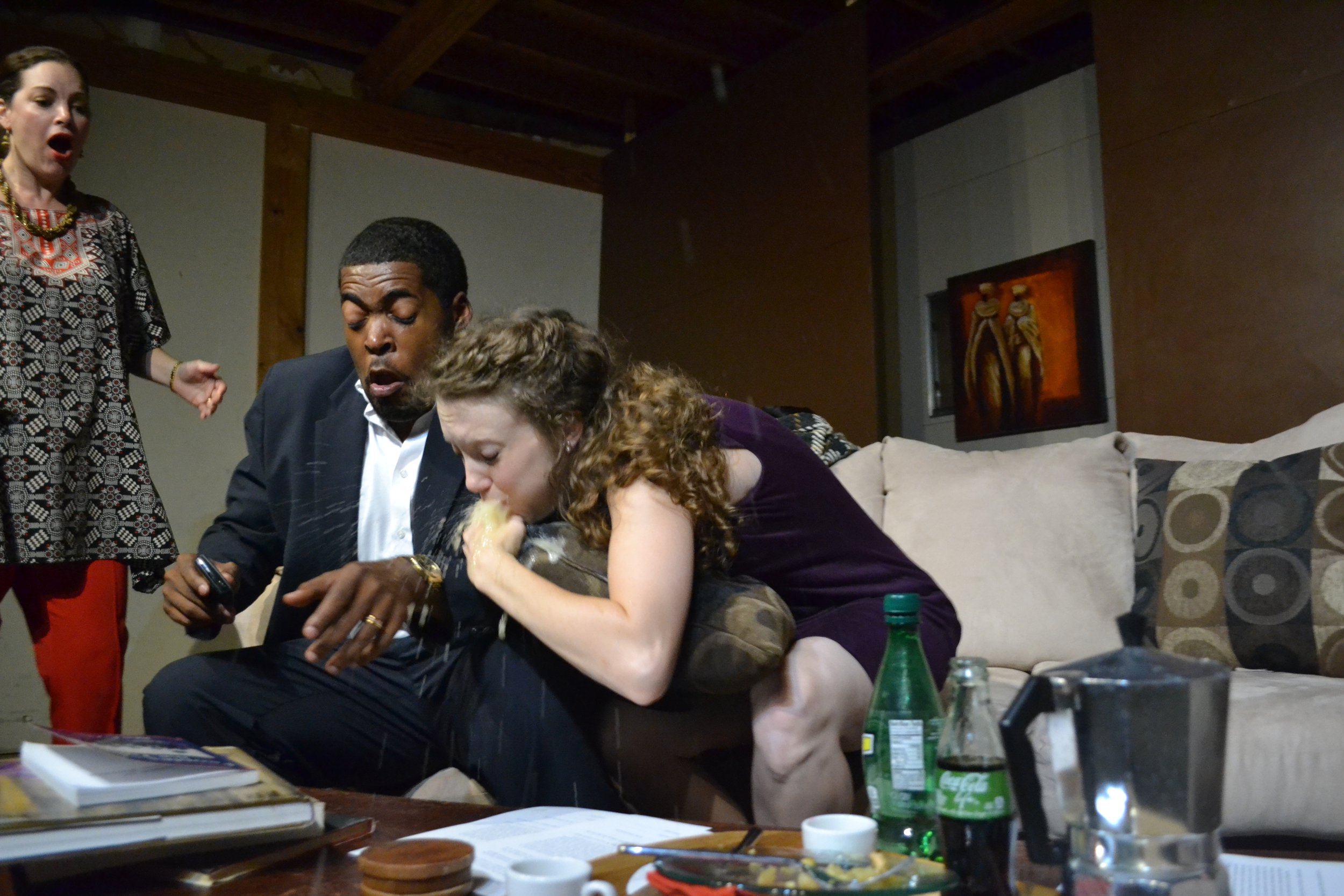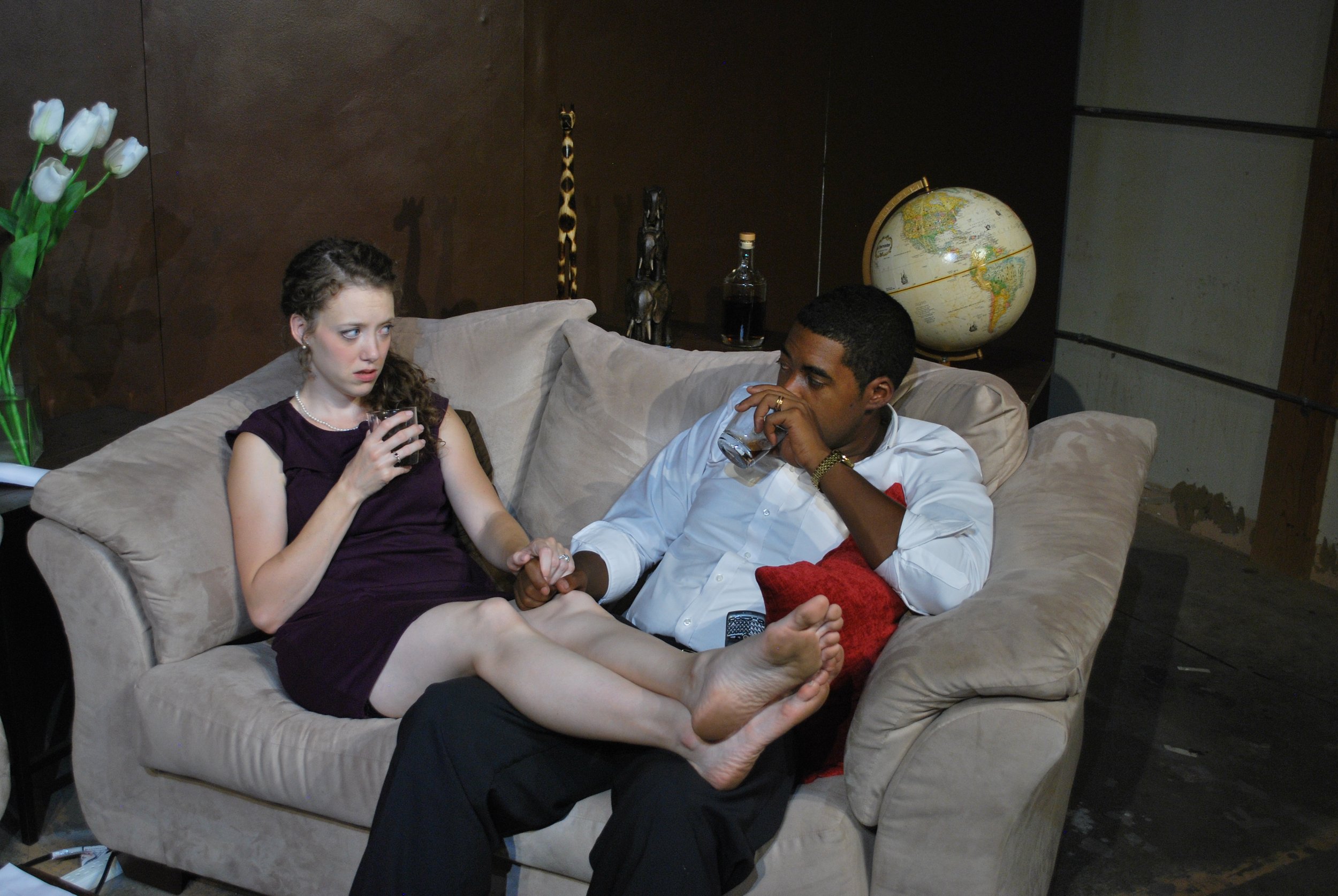God of Carnage by Yasmina Reza translated by Christopher Hampton (This Is Water Theatre, 2015)
My Roles:
Artistic Director, Director, Producer, Technical Director, Lighting Designer, Sound Designer





















ASSISTANT DIRECTOR - ADAM ROTHSTEIN
STAGE MANAGER - MICHELLE SCHOVAERS WAGLEY
ASST. STAGE MANAGER - MACEY PENDERGAST
COSTUME DESIGNER - RAYNA DEXTER
DRAMATURG - ELEANOR OWICKI
Concept
This play is a hilarious character study that continuously begged us to answer one question: why don't Alan and Annette just leave? Throughout the show, there are plenty of opportunities for them to do so, and yet both couples choose to remain.
In a show so rife with marital discord, it is easy to let the idea of dislike and hate become the motivation for the action. However, it became quite clear early in the process that when the actors focused on their hatred for each other, the answer to the question "why don't they just leave?" became an increasingly stronger "we have no clue!"
Instead, I challenged the actors to ask themselves what would change if they loved each other so much and knew each other so well that they knew exactly what buttons to push when they were hurting to provoke a response out of the other. It was a transformative question that gave us a multitude of answers to the question "why don't they just leave."
Why this show?
On the surface, this was a show chosen mostly out of necessity: we needed a 2M/2W show because those were the actors we had. But I was particularly drawn to this show because of the challenge I knew it would present my actors. Due to the show's brevity, I knew that I could cast them opposite the "type" they would likely get cast as elsewhere and still have the time in rehearsal to help them reach our standard of performance quality. It didn't hurt that I really wanted to figure out how to do a vomit effect in an intimate space!
Lessons Learned
I intentionally cast this show "against type," and it confirmed for me the powerful experience that doing so can give both the actors and the audience. Casting people in roles they do not expect to be cast in helps them to shake their habits and shortcuts, improving the quality of their work. When done with sufficient support and guidance, it encourages the audience to shake their habits of observation as well.